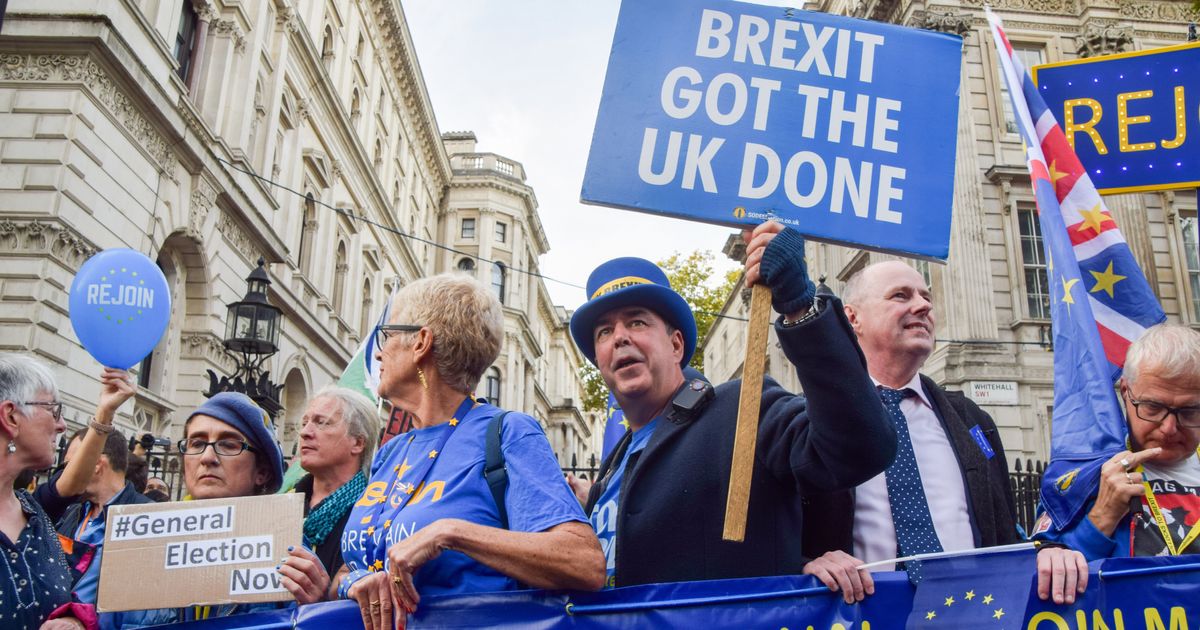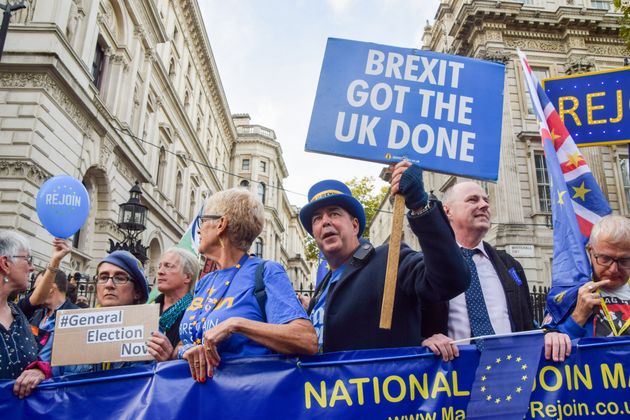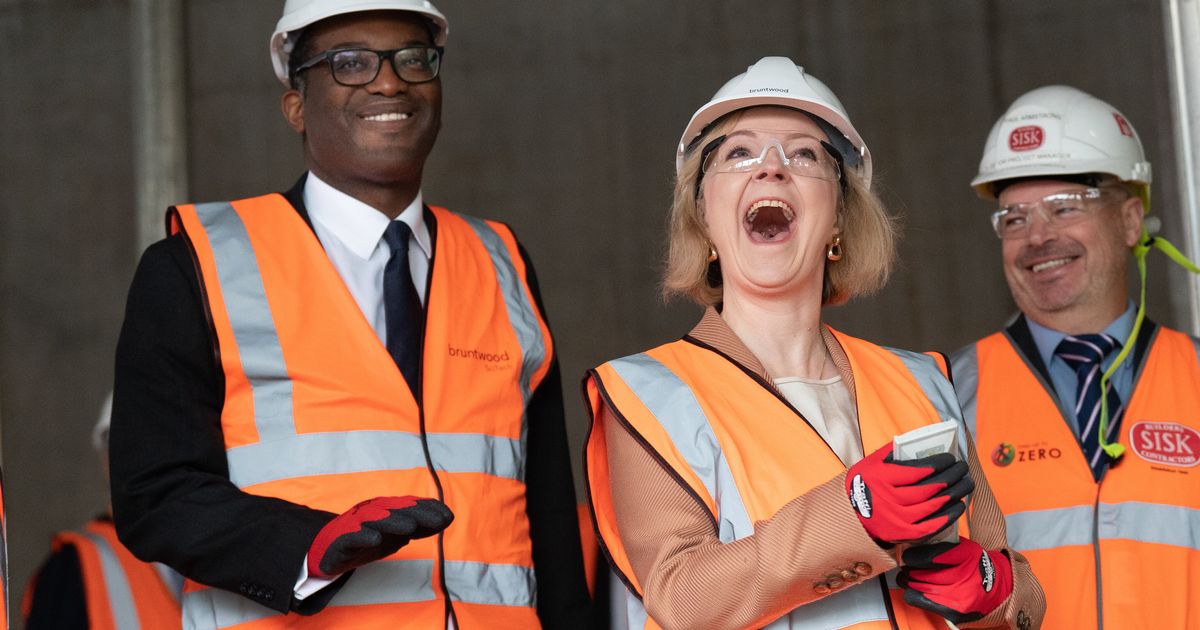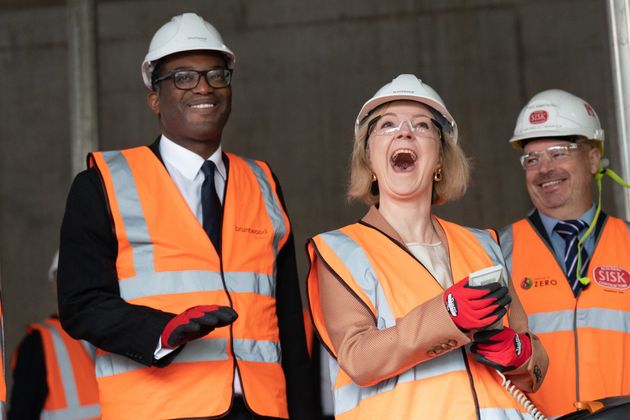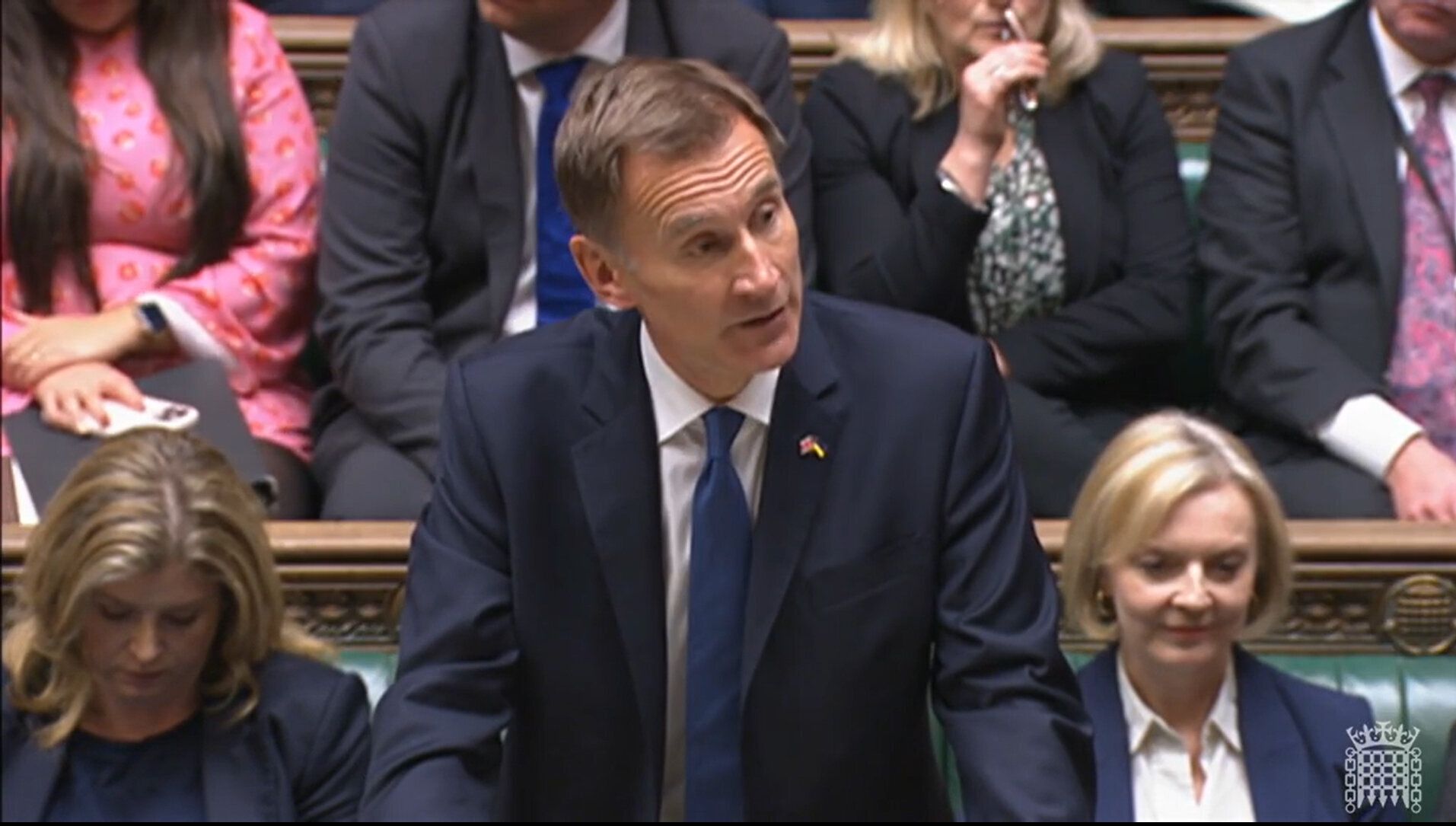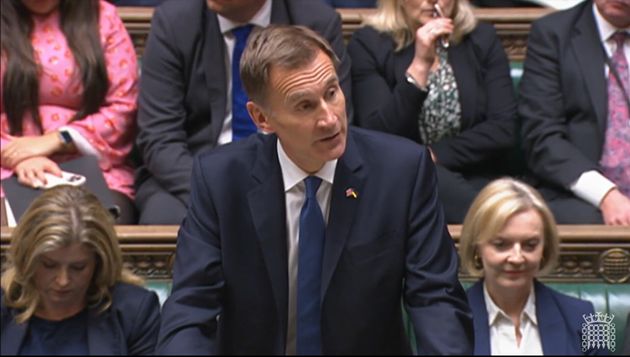
IAN FORSYTH via Getty Images
Vaccinating children over 12 for Covid and boosting self-isolation payments could both prevent fresh spikes in the pandemic, former health secretary Jeremy Hunt has said.
The chairman of the Commons health select committee told BBC Radio 4’s The Week in Westminster that he believed the UK would soon follow the United States in allowing under-18s to get the jab.
In a wide-ranging interview, he also said it was not right that the UK continued to recruit nurses from India and other countries where they were desperately needed, arguing the NHS should further increase numbers trained domestically.
He called for action to tackle the 40% of Covid deaths caused by picking up the virus in hospital and suggested an independent watchdog should set targets for NHS and care staffing.
Ahead of a hotly anticipated evidence session with former No.10 adviser Dominic Cummings, Hunt said he didn’t want the hearing to be dominated by political “dirty washing” or score-settling and that it should instead be focused on lessons learned from any failures to date.
The Pfizer vaccine is currently approved for use in over-16s in the UK, while AstraZeneca and Moderna vaccines are authorised for over-18s.
Health Secretary Matt Hancock has said the UK has secured enough Pfizer doses for children to be vaccinated, if licences are granted.
In the interview to be broadcast on Saturday, Hunt said: “Vaccinating children is something we definitely need to look into and I’m sure we will because they can transmit the virus across generations even if they are not badly affected themselves.
“I think it’s encouraging the US has approved the use of the Pfizer vaccine for the over-12. I would expect something similar here too.”
Earlier this week, Hancock said the government had “a couple of months” before it needed to make a decision on under-18s jabs.
But Welsh First Minister Mark Drakeford recently said it was likely the Welsh government would want to roll out jabs for children if licences were granted.
Hunt hinted that with upto 50% of people failing to isolate for money reasons, the “lessons learned” inquiry may recommend both a big boost in state payments in future and a more localised test and trace system.
“I think it’s likely that a much simpler financial proposition would have helped. Something like we will make up any money that you lose out on if you’re asked to isolate, because if you’re taxi driver or whatever it is, no questions asked.
“I think the second thing is more localised contact tracing capability would have helped. I think people are more likely to isolate if they were asked to do so by their local council or someone working for their local council than from someone in a call centre 300 miles away.”

TOLGA AKMEN via Getty ImagesDominic Cummings
The Commons inquiry into the pandemic is being jointly held by the health and social care committee and the science and technology committee, with its conclusions due this summer. A wider public inquiry isn’t expected to report until after the next election.
With Cummings due to give evidence next week, Hunt said he was happy to give the former adviser enough time to answer questions but warned he could not be allowed to use if for any personal agenda.
“Select committees are cross party. So what this is not, is a moment for the dirty washing of political laundry. Because what we want to do is to get to the bottom of what we did well and what we did not do well, and what lessons we need to learn.
“But it is a very unusual thing in a select committee inquiry to take evidence from someone who is actually in the room when the big decisions were made, both at the start of the pandemic, and in the run up to second lockdown in November. So we’ll be asking, what were the pressures on decision makers, why certain decisions were taken. And I think that will be incredibly helpful.
“If he’s got a lot to say we’ll give him the space to say it, but we only want to hear things that are relevant to our inquiry which is lessons that can be learned for the future in terms of our country’s pandemic handling.”
With India currently going through its worst wave of the virus, Hunt said that the UK had to now rethink its recruitment of NHS staff from places where they were needed locally.
Asked if it was right that the NHS recruited nurses from countries like India, he replied: “I don’t think so. I think that we have undertrained the numbers of doctors and nurses we need over many decades, because we’ve been confident that we could import them from other countries, if we needed to.
“But for the NHS to have doctors or nurses from places like Sudan and Somalia and India, brilliant professionals though they are, I think poses some very difficult ethical questions.
“I think the NHS should be training the numbers of doctors and nurses that we need for ourselves, and then have all the international exchanges that mean that we are benefiting from contact with the brightest best from all over the world, but not fundamentally depending on other countries to do our training for us.”
The former health secretary said hospital acquired Covid was a big issue that failed to get the attention it deserved.
“One of the things I think is not being talked about enough has been the high proportion of people who caught Coronavirus in a hospital, and died because of an infection that they caught in a health care setting, we think between 20 and 40% of all deaths were from people who actually caught Coronavirus in a hospital setting. And we’ve got to do better.
“ I think there are lots of lessons but it looks like hospitals when they overcame their PPE issues early on, didn’t have any guidance about social distancing and things they should take care of outside the COVID wards, outside the ICU.
“So people were really careful inside intensive care units but in the dementia wards, the elderly care ward, other parts of hospitals where doctors and nurses have teas and coffees, we didn’t do enough early on and there needed to be some national guidance to help people do that.
“I think we also will look at ventilation systems in hospitals because we know with an airborne virus it’s not just surfaces, it’s what’s carried in the air.”
Hunt said that the NHS 1% pay rise offer was “badly handled”, but said the need to recruit many more nurses and doctors was just as important.
He called for an independent watchdog like the Office for Budget Responsibility to publish the levels of staffing needed by both health and social care over the next 10 years “as a way of creating a discipline on the government to make sure we are actually training enough people”.
The Week in Westminster will be broadcast on BBC Radio 4 on Saturday May 22 at 11am




